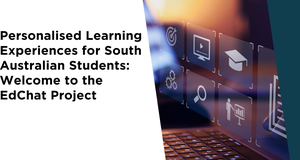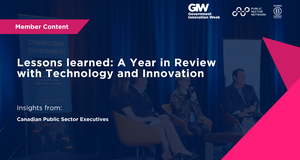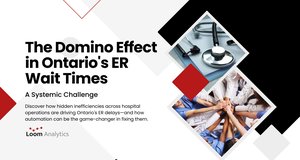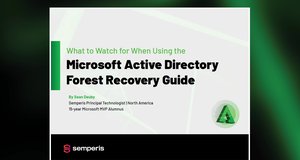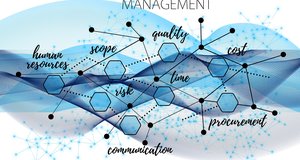Creating Inclusive Workplaces in the Public Sector
Listen to this interview with Katie Alexander, an expert from Australian Psychological Services on promoting inclusivity for neurodivergent and psychosocially diverse individuals in public sector organisations.


In the evolving landscape of public sector workplaces, inclusion is not merely about representation—it is about creating environments where all employees, including neurodivergent and psychosocially diverse individuals, can thrive. Neurodiversity and psychosocial diversity, often underrepresented in the workforce, bring unique perspectives and strengths that are invaluable for driving innovation and achieving better outcomes in government services.
Katie Alexander, an Organisational Psychologist and Principal Consultant from Australian Psychological Services, shared invaluable insights with Charlie Hamer, co-founder of Public Sector Network, in a discussion focused on fostering inclusivity for neurodivergent and psychosocially diverse individuals in public sector organisations.
The Challenges of Attracting Neurodivergent and Psychosocially Diverse Employees in the Public Sector
A critical barrier to hiring neurodivergent and psychosocially diverse employees in the public sector is the presence of unconscious biases in recruitment processes. Katie explains that these biases can significantly affect the chances of neurodivergent individuals, such as those with autism or ADHD, being hired. For example, certain behaviours such as avoiding eye contact or appearing anxious during interviews can be misinterpreted, leading to unfair assumptions about their capabilities.
To ensure a more inclusive recruitment process, public sector organisations must focus on evaluating candidates based on their skills and experiences, rather than on superficial traits that may be influenced by their neurodivergence or psychosocial condition. This approach fosters a fairer and more inclusive hiring process that truly values diversity.
Building Inclusive Workplaces for Neurodivergent and Psychosocially Diverse Employees
Creating an inclusive workplace for neurodivergent and psychosocially diverse employees goes beyond simple accommodation; it requires adopting a whole-of-life-cycle approach to employee engagement. Katie advocates for this approach, which includes recruitment, onboarding, development, and even offboarding processes.
A key framework for fostering neuro-inclusive workplaces is The Canary Code, created by Professor Ludmilla Preslover. The Canary Code is a model with six core principles: participation, outcomes, flexibility, organisational justice, transparency, and valid measurement. Applying these principles across the employee lifecycle ensures neurodivergent and psychosocially diverse individuals feel valued, supported, and empowered to succeed.
By incorporating these principles into daily HR practices, public sector organisations can build an inclusive environment that benefits both neurodivergent individuals and the broader workforce.
Avoiding One-Size-Fits-All Approaches to Neurodivergence and Psychosocial Diversity
Katie highlights a significant mistake many organisations make: the assumption that a one-size-fits-all approach works for neurodivergent or psychosocially diverse employees. Each individual’s needs, strengths, and challenges are unique. For example, not all neurodivergent individuals need the same accommodations or support. This is where the importance of a personalised, collaborative approach comes into play.
Leaders and HR professionals in the public sector must take the time to understand the specific needs of each neurodivergent and psychosocially diverse team member. By working directly with individuals to identify how they can be best supported, organisations ensure that accommodations are meaningful and help employees reach their full potential.
Advice for Neurotypical Leaders Managing Neurodivergent and Psychosocially Diverse Team Members
Effective leadership is critical to the success of any employee, and even more so for neurodivergent and psychosocially diverse individuals. However, many leaders in the public sector lack experience working with these groups and may struggle with how best to offer support.
Katie’s advice to neurotypical leaders is to adopt a strengths-based approach when managing neurodivergent and psychosocially diverse team members. Instead of focusing on perceived deficits or challenges, leaders should highlight and leverage the unique strengths that neurodivergent individuals bring to the table—such as exceptional problem-solving skills, creativity, and attention to detail.
Taking a strengths-based approach empowers employees to thrive and encourages greater innovation and productivity in teams. Public sector leaders must ensure that their teams are equipped with the tools and understanding necessary to harness the diverse capabilities of neurodivergent and psychosocially diverse individuals.
Practical Insights for Public Sector Leaders on Creating Inclusive Workplaces
Katie’s course offers practical, actionable insights into creating an inclusive environment for neurodivergent and psychosocially diverse employees.
Participants can expect to gain:
- A practical understanding of neurodivergence and psychosocial diversity
- Insight into common biases in recruitment and the workforce
- Knowledge on how to make reasonable adjustments and manage disclosures
- Tips on how to leverage the strengths of neurodivergent employees
- Strategies for fostering inclusion across all stages of the employee lifecycle
These practical tools are essential for public sector leaders who want to create inclusive workplaces where all employees—regardless of their neurological or psychosocial conditions—can thrive and contribute their full potential.
Conclusion
As the public sector continues to focus on diversity and inclusion, the importance of supporting neurodivergent and psychosocially diverse employees cannot be overstated. By focusing on their strengths, adopting personalised support strategies, and using models like the Canary Code, public sector organisations can create environments where all employees feel valued and empowered to succeed. Katie Alexander’s insights provide essential guidance for leaders committed to making their workplaces truly inclusive, ensuring that everyone—regardless of neurological or psychosocial challenges—has the opportunity to contribute meaningfully to public service outcomes.
Academy's Commitment to Support Inclusive Workplaces in the Public Sector
To help public sector leaders create truly inclusive workplaces, the Academy is committed to supporting organisations with targeted training that focuses on neurodivergent employees:
Unlocking Potential: Neurodivergence in the Workplace
This training provides HR leaders with strategies to better support neurodivergent employees. It focuses on a strengths-based approach to inclusion, offering practical insights on how to make reasonable adjustments and create a more inclusive culture for neurodiverse staff in the public sector.
- Communities
- Workforce, Skills and Capability
- Regions
-
Australia
Published by
Recommended

Interviews

Whitepapers & Reports

Interviews

Industry Trends

Industry Trends
Sign up
Most Popular Insights
Most Popular Partner Content







